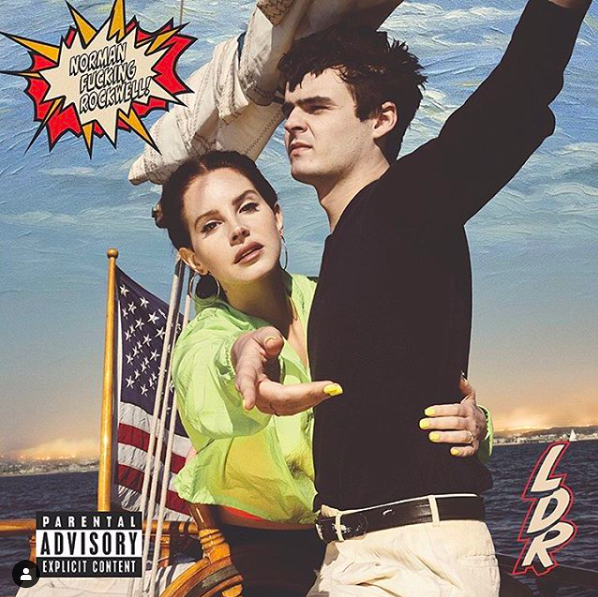HOLLYWOOD—The 2014 Billboard Music Award nominee Lana Del Rey has recently come under fire for a recent Instagram post where she stated, “Now that Doja Cat, Ariana, Camila, Cardi B, Kehlani, Nicki Minaj, and Beyoncé have had number ones with songs about being sexy, wearing no clothes, f***ing, cheating, etc – can I please go back to sining about being embodied, feeling beautiful by dancing for money – or whatever I want –without being crucified or saying that I’m glamorizing abuse??????”
Lana explained that as an artist her music is a self expression and is a way for her to cope with the abuse that she endured in the past, she also stated in the post:
“Over the last 10 years I just think it’s pathetic that my minor lyrical exploration detailing my sometimes submissive or passive roles in my relationships has often made people say that Ive set women back 10 years.” She added, “If I even expressed a note of sadness in my first two records I was deemed literally hysterical. I also feel it really paved the way for women to stop ‘putting on a happy face’ and to just be able to say whatever they want.”
She is referring the lyrics from her songs like “Ultraviolence,” where she sings:
“He hit me and it felt like a kiss. Jim brought me back…He hurt me but it felt like true love. Jim taught me that Loving him was never enough.” In the Instagram post, Del Rey explains that she is simply singing about her own personal experiences.
In a 2012, “Born To Die” album review from Pitchfork.com, “The album’s point of view– if you could call it that– feels awkward and out of date.” “[It has] as underscored some seriously depressing truths about sexism in music. She was subjected to the kind of intense scrutiny– about her backstory and especially her appearance– that’s generally reserved for women only. But the sexual politics of Born to Die are troubling too: You’d be hard pressed to find any song on which Del Rey reveals an interiority or figures herself as anything more complex than an ice-cream-cone-licking object of male desire.”
Rolling Stone made similar comments in a review for the same album saying, “Give Lana Del Rey credit: At least she didn’t break down and cry on Saturday Night Live. She’s a starlet to music bloggers…Her strength is the lyrics, which have the pop-trash perversity that the music lacks.” The magazine rated her album two out of five stars.
Some left comments under the artist’s Instagram post accusing her of picking on women of color. Beyonce, Megan Thee Stallion, Nicki Minaj and Doja Cats are just a few women that she pointed out and all of which have recently topped the Billboard Charts.
Over 40,000 comments were made about Del Rey’s post. @jbxrden left a comment stating, “I mean no hate; you’re a talented singer. It just gets me how you’re being so hypocritical (you say people label your songs as songs about “Glamorizing abuse” yet you labeled their sons as “Cheating, f***ing, twerking”…you can’t expect people to pick up the deep meaning of your work if you can’t do the same.”
“You expect them to pick up on the vulnerability and the unconditional love in your songs but you completely diminish their songs empowerment, sexuality, and confidence,” @jbxrden added.
On her 2014 album, “Ultraviolence,” the song “Sad Girl” illustrates an affair she had with a man who was already in a relationship. “Being a Mistress on the side might not appeal to fools like you. Creeping around on the side wouldn’t be something you would do…His Bonnie on the side…Makes me a Sad Girl,” sings Lana.
She uploaded another post that read:
“I want to say that I remain firm in my clarity and stance in that what I was writing about was the importance of self advocacy for the more delicate and often dismissed, softer female personality, and the there does have to be room for that type.”
The musician addressed those who deemed her as a racist saying:
“In truth making it about race says so much more about you than it does about me–you want the drama, you don’t want to believe that a woman could be beautiful, strong, and fragile at the same time, loving and ll inclusive by making personal reparations simply for the joy of doing it.”






